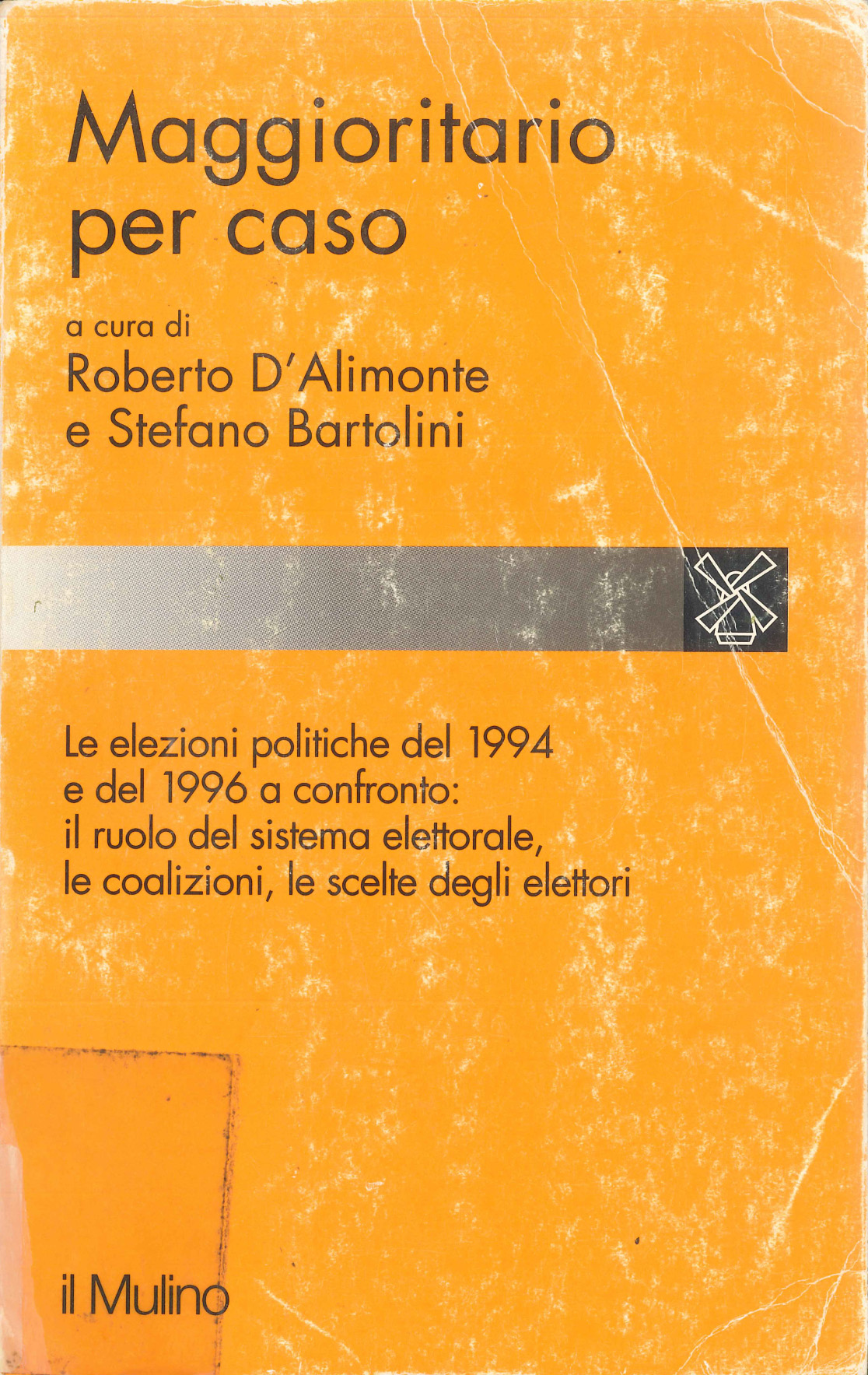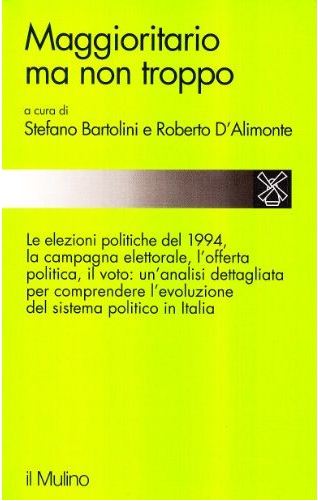Ricerca
-
Mixed Electoral Rules, Partisan Realignment, and Party System
D’ALIMONTE, R. D. R. (2001). Mixed Electoral Rules, Partisan Realignment, and…
-
Il maggioritario regionale. Le elezioni del 16 aprile 2000
-. (2000). Il maggioritario regionale. Le elezioni del 16 aprile 2000.
-

Maggioritario per caso. Le elezioni politiche del 1996
D’Alimonte R., Bartolini S. (a cura di), Maggioritario per caso. Le…
-
Maggioritario per caso. Le elezioni politiche del 1996
-. (1997). Maggioritario per caso. Le elezioni politiche del 1996.
-
Les miracles du mode de scrutin
D’ALIMONTE, R. D. R. (1997). Les miracles du mode de scrutin.…
-
Electoral Transition and Party System Change in Italy
D’ALIMONTE, R. D. R., & BARTOLINI, S. (1997). Electoral Transition and…
-

Maggioritario ma non troppo. Le elezioni politiche del 1994
Bartolini S., D’Alimonte R. (a cura di), Maggioritario ma non troppo.…
-
La transizione italiana: il voto regionale del 23 Aprile
D’ALIMONTE, R. D. R. (1995). La transizione italiana: il voto regionale…
-
Maggioritario ma non troppo. Le elezioni politiche del 1994
-. (1995). Maggioritario ma non troppo. Le elezioni politiche del 1994.
-
Il nuovo sistema elettorale italiano: quali opportunità?
D’ALIMONTE, R. D. R., & CHIARAMONTE, A. (1993). Il nuovo sistema…